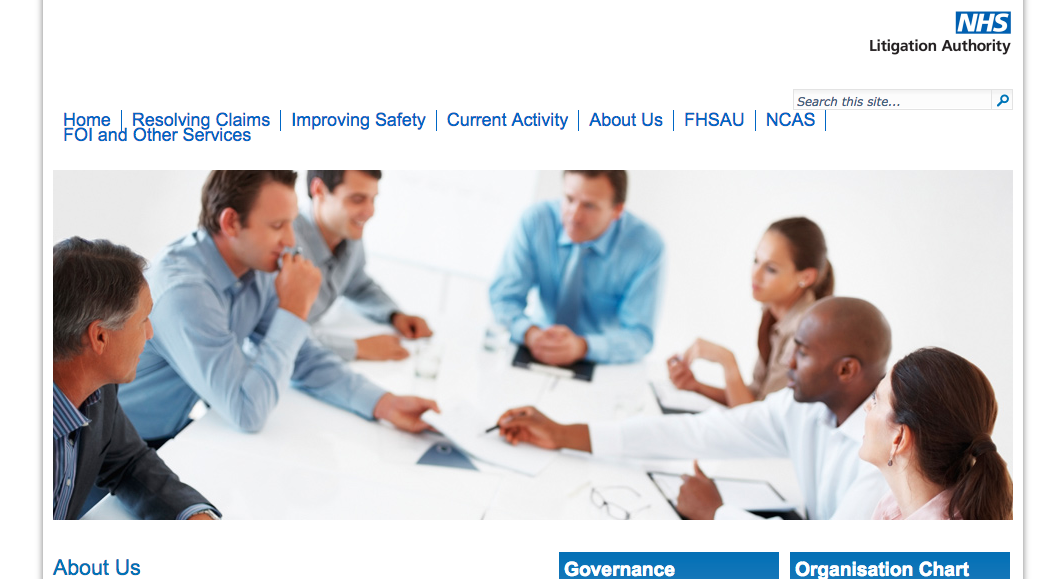
There are few institutions quite as universally revered in Britain as the NHS. Our national health service is a point of pride for the country. It is not only amongst the most advanced health services in the world, but it remains completely free at the point of use. For the vast majority of the millions of patients who pass through the NHS every year, the experience is a positive one. Of the small percentage of those who have a negative experience with the NHS, the complaints are usually minor.
However, sometimes the standard of care that patients receive falls far below that that they expect. When this occurs, it is possible that the patient might have a claim for clinical negligence.
What is Clinical Negligence?
Clinical negligence refers to lapses in the standard of care that a patient receives while in a medical institution such as a hospital. Not every error or mistake made by doctors and other staff constitutes negligence, however. The term has a very specific meaning and there are certain criteria which must be met before negligence can be said to have occurred.
In order for clinical negligence to have occurred, an individual with a duty of care towards a patient must cause that patient harm by failing to perform their role to the standard that a reasonably competent practitioner in their field would. Establishing that this duty of care exists between medical staff and the patient is not difficult. Any staff member who works in some capacity towards delivering a patient’s healthcare has a duty of care to the patient.
The more difficult criteria to prove and, therefore, establish a case for medical negligence, is that the behaviour of the individual in question fell below the standard that could reasonably be expected from them. Not only this, but a successful medical negligence claim also needs to demonstrate that this lapse in judgement directly caused illness or injury. Collectively, this is known as the Bolam test. It is these criteria above all else that medical negligence solicitors need to demonstrate in court.
Pursuing a Legal Claim for Medical Negligence
If you have been injured while under the care of the NHS and you feel that your injury was the result of poor decision making on the part of those responsible for your care, then you might have a valid case for medical negligence. You can also pursue a compensation claim if you are the next of kin to someone who died because of neglectful medical treatment or is unable to pursue a claim themselves because they lack the capacity.
While you don’t have to use the NHS complaints procedure at all prior to filing a complaint, it is advisable to do so. In some cases, you might find that the response of the hospital or trust involved in your care is adequate and you no longer feel the need to pursue a negligence claim. An internal NHS investigation arising from a complaint made through their internal complaints procedure will help you to establish what happened and what the other side of the story is.
Hearing the hospital’s version of events will allow you to make a much more informed decision about whether to take your case any further and will also provide invaluable information for any medical negligence lawyers who ultimately take your case on. If you are considering going ahead with a medical negligence case, before you go out looking for the best medical negligence solicitors you can find, you will want to have as much information as possible to help you decide how or whether to proceed.
Starting a claim for clinical negligence shouldn’t have any effect on any investigations relating to complaints made through the NHS complaints procedure, except in exceptional circumstances. One example of circumstances in which this might occur is if a judge has ruled that the investigation of your complaint would interfere with the legal proceedings that you have brought forward.
Pursuing claims against medical staff for medical malpractice isn’t something that you should enter into lightly. The process takes time and will inevitably involve a significant degree of stress. If you are in any doubt as to your ability to deal with the psychological demands of pursuing a medical negligence complaint, then you should proceed with caution. Searching for terms such as ‘medical negligence claims UK’ or even ‘medical negligence UK’ will return more information, which will give you an idea of what to expect.
Before you embark upon pursuing a negligence claim against the NHS, you should understand that the courts only have the power to award compensation. In the event of a successful claim, the court does not have the power to force any individual or organisation to apologise, to mandate for changes in internal procedures, or to discipline any individual or organisation in any way other than the awarding of financial compensation to the claimant.
The NHS Litigation Authority
The NHS Litigation Authority (NHSLA) is the body that will represent the NHS whenever a claim is made against them. Fewer than 2% of the claims handled by the NHSLA are settled in court. The rest are either settled beforehand or are dropped by the claimant. The NHSLA maintains a database which contains details of any and all claims made against the NHS. This includes instances where the patient has not yet made a claim but has expressed their intention to do so.

Compensation Schemes
In some cases, there are special schemes operating. In some cases, patients can claim compensation from these schemes without having to take their case to court. An example of this is patients who have contracted HIV in the course of being treated for haemophilia. These patients can apply to the Macfarlane Trust for compensation, as well as from the government. There is a similar scheme available for those who have suffered because of problems with vaccines.
If you pursue a case in the courts and the judge rules in your favour, then you will be awarded compensation. This compensation is calculated according to a number of different factors and is designed to reflect the level of suffering that you have endured. In cases where there is an easily demonstrable loss of earnings or other financial injury arising from your medical negligence case, then this will also be factored into your award.
Finding a Solicitor
You should always consult with a solicitor who specialises in cases of medical negligence and only proceed with your claim if they advise you to do so. Remember, that even if you begin pursuing a claim, the chances of it actually going before a judge are slim. This is not necessarily a bad thing. It can mean that the case is settled out of court and in your favour before it ever gets as far as a courtroom. You should thoroughly research any organisation that you consider approaching and check their credentials, so take advantage of reputable groups such as The Medical Negligence Experts who offer free consultations, so you can get the opportunity to ask all of the questions you want before you decide to hire a solicitor.
Pursuing a claim of medical negligence against the NHS is a major decision. Claims like these take time to resolve, during which you will have to shoulder the stress and pressures of your case. However, if you feel that you have been wronged by the health service, then pursuing such a claim is your best shot at being compensated.
This is an article provided by our partners network. It might not necessarily reflect the views or opinions of our editorial team and management.
Contributed content

Founder Dinis Guarda
IntelligentHQ Your New Business Network.
IntelligentHQ is a Business network and an expert source for finance, capital markets and intelligence for thousands of global business professionals, startups, and companies.
We exist at the point of intersection between technology, social media, finance and innovation.
IntelligentHQ leverages innovation and scale of social digital technology, analytics, news, and distribution to create an unparalleled, full digital medium and social business networks spectrum.
IntelligentHQ is working hard, to become a trusted, and indispensable source of business news and analytics, within financial services and its associated supply chains and ecosystems





























